A recent article by Rubagumya et al., (2023) titled “An analysis of the African cancer research ecosystem: tackling disparities” published in BMJ Global Health shows that African researchers depend on international funding agencies that set the research priorities and often require collaboration with high-income countries.
Cancer research in Africa stands at a critical juncture, grappling with disparities that hinder its development and impact. This article explores the disparities in cancer research in Africa and how to address them. African researchers depend on international funding agencies that set the research priorities and often require collaboration with high-income countries (HICs). This creates power imbalances and parachutism in cancer research. The authors suggested that African governments and institutions should develop and administer their own competitive grant and fellowship schemes. The authors further describe the various challenges and imbalances that affect cancer research in Africa, such as lack of funding, infrastructure, training, representation, and local relevance.
“
African cancer research faces disparities; local autonomy, funding, and collaboration are vital for impactful, context-specific advancements and equitable outcomes.– Rubagumya et al., 2023
The Challenges and Imbalances that Affect Cancer Research in Africa
Funding gap: Most cancer research funding comes from international agencies based in high-income countries (HICs), which often set the research priorities and impose conditions that may not align with the local needs and contexts of African countries. African researchers also face difficulties in accessing these funds due to the complex and lengthy application processes and the lack of local support and infrastructure.
Research concentration: Cancer research in Africa is unevenly distributed, with a few countries and institutions receiving most of the resources and opportunities. This creates a vicious cycle of inequity and exclusion for other countries and institutions that may have less expertise, infrastructure, or patient populations.
Research capacity: There is a lack of investment in the education, training, and mentorship of African researchers, especially in the field of cancer. Many clinicians who wish to conduct research have limited time, skills, and incentives to do so. There is also a shortage of research career pathways and opportunities for early-career researchers in Africa.
Research relevance: The type of cancer research conducted in Africa is often influenced by the interests and agendas of HICs, which may not reflect the local burden, needs, and realities of cancer care in Africa. There is a need to prioritize health system strengthening, health services research, and value-based cancer care that are appropriate and feasible for the African context.
Research dissemination: African researchers face barriers in publishing their work in high-impact journals based in HICs, which may have a publication bias against studies from low- and middle-income countries (LMICs). African researchers also have limited access to major oncology conferences, where they can network and establish collaborations. There is a need to support local journals and platforms that empower and recognize African research.
How the study was conducted
The authors employed a literature review of existing publications on cancer research in Africa, focusing on the topics of funding, authorship, research priorities, dissemination, and ethics. The authors also drew on their own experiences and perspectives as African researchers or collaborators in cancer research projects in Africa. The authors identified the main disparities and barriers in the cancer research ecosystem in Africa and suggested actionable steps to overcome them. In addition, the authors employed a decolonizing approach to challenge the dominant paradigms and practices of cancer research in Africa and to advocate for more local autonomy and empowerment of African researchers.
What the Authors Found
The authors found that sub-Saharan Africa contributes only 22% of the total cancer research papers from Africa, and most of them are from South Africa and Egypt. They also noted that African researchers are underrepresented in authorship and leadership positions in global oncology publications.
The authors pointed out that most African countries have not met the African Union’s pledge of investing 1% of their GDP in research and development. They also argued that international funding bodies based in high-income countries (HICs) have enormous power and influence in setting global cancer research priorities, which may not align with the local needs and context of African countries.
The authors observed that African researchers face difficulties in publishing their work in high-impact journals based in HICs, due to a documented publication bias against studies from low- and middle-income countries (LMICs).
Why is this important
The study highlights the need for more investment and support from African governments, societies, and institutions to fund and conduct cancer research that is appropriate for the African context and priorities. The study also calls for more collaboration and partnership between African researchers and those from high-income countries, based on mutual respect, trust, and transparency, and avoiding research parachutism and epistemic injustices. The study advocates for more training and mentorship opportunities for early-career African researchers, as well as incentives and policies, to protect their research time and career development.
In addition, the study emphasizes the importance of health system strengthening and health services research, as well as value-based and implementation science, to improve cancer outcomes and access to care in Africa, thereby challenging the current model of academic publishing and dissemination, which is dominated by high-impact journals based in high-income countries, and suggests new tools and approaches to decolonise global oncology research, such as reflexivity statements and transparency matrices.
What the authors recommend
- The authors suggest that African governments should develop and administer competitive grants and fellowship schemes by African institutions and organizations.
- The study recommends local researchers be involved in the design, conduct, and dissemination of research by local ethics committees and funding bodies.
- Establishing and scaling up cancer research centres of excellence in African countries the authors suggest that African governments should invest in the education, training, and mentorship of early-career African researchers and provide them with protected time and incentives.
- Furthermore, the authors argue that African governments should create an African cancer research agenda that is appropriate for the local context and led by African scholars, clinicians, and researchers.
- The authors suggest prioritizing local journals for the dissemination of Africa-based research and adopting new tools for decolonizing academic publishing, such as the transparency matrix and structured reflexivity statements.
- The authors recommend that African governments should promote gender equality and equity in cancer research for both participants and researchers, strengthening and encouraging South-South collaborations to address common challenges and increase capacity.
In conclusion, addressing the disparities and challenges in cancer research in Africa requires a concerted effort from governments, institutions, and researchers. The recommendations put forth, such as developing local funding schemes, establishing research centres of excellence, and prioritizing education and mentorship, aim to empower African researchers and promote context-specific, impactful cancer research. By fostering collaboration, transparency, and a commitment to local relevance, there is potential to bridge the existing gaps, empower the next generation of researchers, and ultimately enhance cancer outcomes in the African context. The call for a paradigm shift towards autonomy, equity, and inclusivity serves as a roadmap for a more sustainable and impactful future in African cancer research.



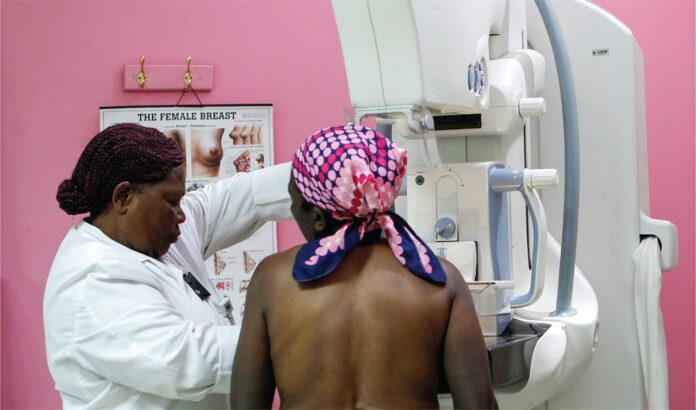


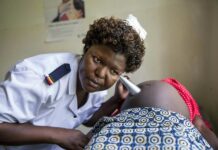
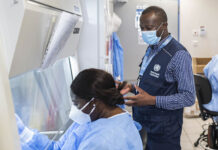
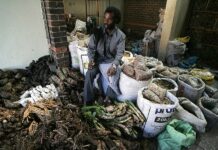

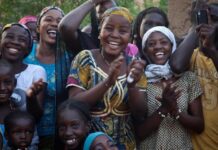

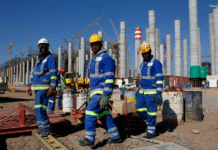



 The African Research (AR) Index is a comprehensive scholarly directory and database focused explicitly on journal publishers that publish and disseminate African research.
The African Research (AR) Index is a comprehensive scholarly directory and database focused explicitly on journal publishers that publish and disseminate African research.

